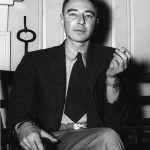Continued from yesterday.
It’s not until my husband and I return from our getaway weekend and arrive home from the cabin to the Internet, to the noise of children, to the chaos of community life creeping in, that I find the space to read Wendell Berry’s poetry. This poem, in particular, resonates with me:
How to Be a Poet
By Wendell Berry
(to remind myself)
i
Make a place to sit down.
Sit down. Be quiet.
You must depend upon
affection, reading, knowledge,
skill—more of each
than you have—inspiration,
work, growing older, patience,
for patience joins time
to eternity. Any readers
who like your poems,
doubt their judgment.
ii
Breathe with unconditional breath
the unconditioned air.
Shun electric wire.
Communicate slowly. Live
a three-dimensioned life;
stay away from screens.
Stay away from anything
that obscures the place it is in.
There are no unsacred places;
there are only sacred places
and desecrated places.
iii
Accept what comes from silence.
Make the best you can of it.
Of the little words that come
out of the silence, like prayers
prayed back to the one who prays,
make a poem that does not disturb
the silence from which it came.
I read this poem of quiet—of communicating without screens, of living without air conditioning and technology, in order to “make a poem that does not disturb the silence from which it came”—to my husband in our bed at home and we nod and say, “hmmm, yes,” together.
Berry often writes of loss and the quirkiness of community, but his writing spins visions of a world long past: one that is idyllic, beautiful, and ultimately fulfilling. In those moments of reading his poetry, I find Berry’s words affirming of the life we’ve chosen and pushing us to even more difficult choices.
But after nearly a decade of attempting to eschew some of the attractions and amenities of urban life, I’ve also begun to wonder if Berry’s pure ideals are feasible, if this idyllic long ago that he writes about ever really existed at all.
We moved to our farming community on the wings of a Wendell Berry novel eight years ago, hoping for a simpler life, and even taking a brief detour to visit his home in Kentucky as we drove from Washington, D.C. to the rural Midwest. For eight years, we gave all we were able to give to the ideals of sharing our lives with our neighbors, worshipping together, eating together, and growing good food.
Eventually, we decided to leave, not because we didn’t believe in the ideals of hospitality, simplicity, and love of neighbor anymore, but because the community began to crumble under the weight of flailing leadership, clashes of vision, financial strain, and broken relationships.
Sometimes I wonder how this broken community would fit into Berry’s ideals.
As Tamara Hill Murphy suggests in her piece “The Hole in Wendell Berry’s Gospel,” Berry’s world often glosses over the darker aspects of human frailty, blaming our societal ills on “external forces” like technology, societal ignorance, and global warming rather than families, relationships, and internal strife.
Though the last eight years of our life have brought us, in many ways, more silence and less busyness, they haven’t kept us from making our own internal noise, from a vision of Sister Wives or shadows on the wall.
I wonder, now, if the answers we seek from silence are found simply by turning off the lights and disconnecting the wires. Those are good things to do. But they don’t necessarily lead us easily into silence. What is needed is an intentional focus on discovering what is beneath the quiet.
What lies beneath our desire for silence, what needs to be unearthed isn’t always a beautiful landscape, a thriving community, a quiet bird singing, or peace; it is often the darkness itself that we must contend with. Flocking to rural life and simple living can be just as much an attempt to avoid the darkness as binge-watching a TV show. That is because the darkness comes not only from external forces—it comes from inside of us, and we cannot escape it.
Practicing silence requires facing the roots of our own internal noise and static Sometimes we have to confront it in a cabin with no Internet. But sometimes we can only hear what needs to be heard when the lights are on, when our children are calling for more water before bed, when the screens of our phones still glow in the dark even after the lamps have been turned off.
Sometimes those roots are revealed, not in the peaceful ride on the lake but in the cold water seeping into a canoe on a bank that still looks like winter.
I still long to live and witness Wendell Berry’s visions of simple living but after attempting to live that way for many years, I’ve realized that the ideals of eschewing technology or turning my back to the world outside won’t save me. It is only after my ideals have been broken and I am reaching into both the noise and the quiet, that I begin to discover what truly ails me.
Christiana Peterson grew up in Texas and received a PhD in Creative Writing from St. Andrews University in Scotland. She has published pieces on death, fairytales, and farm life at Art House America, her.meneutics, and cordella. She lives with her family in the rural Midwest where she is learning the joys and challenges of church and farm life. You can find more of Christiana’s writing on her blog at christiananpeterson.com and follow her on twitter.
Above image by Apetitu, used with permission under a Creative Commons License.














